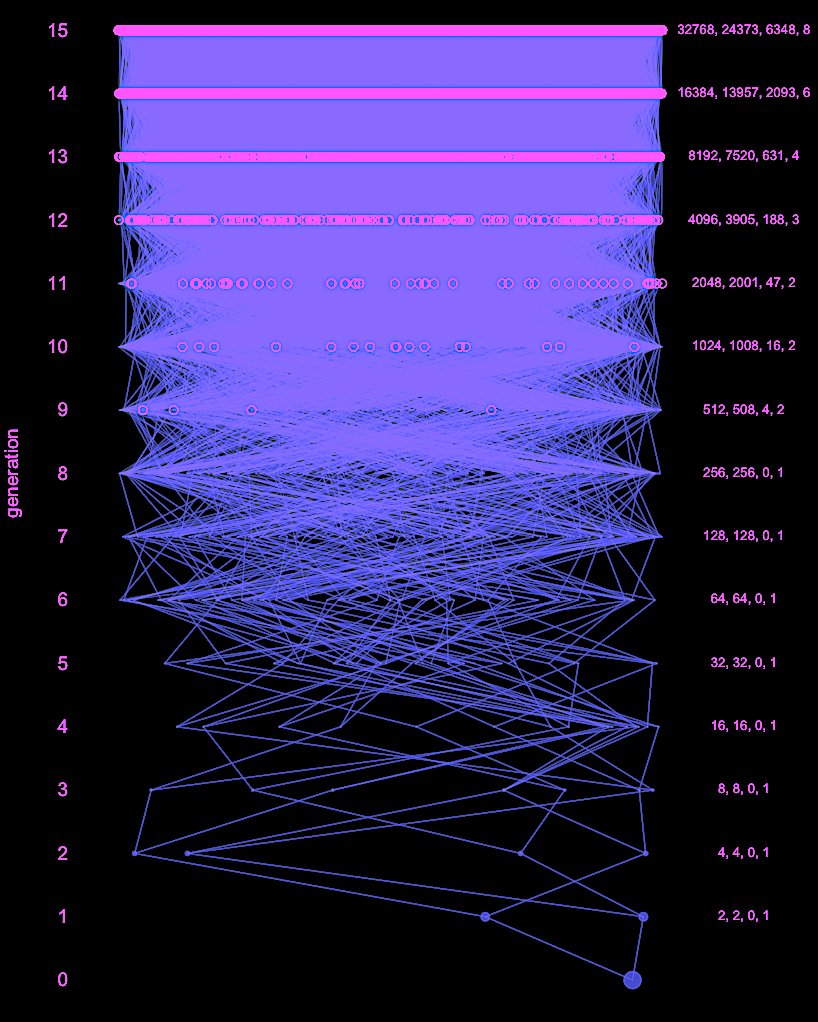
I see that there is a lot of chat about ancestry and indigeneity, two complex and profoundly misunderstood concepts. Here’s a thread 1/N - I have written about these ideas extensively, in two books;

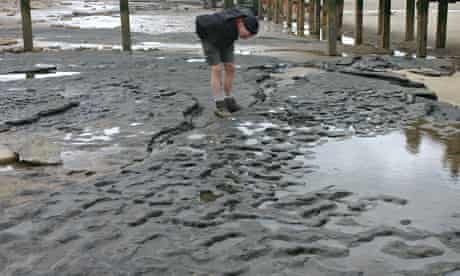
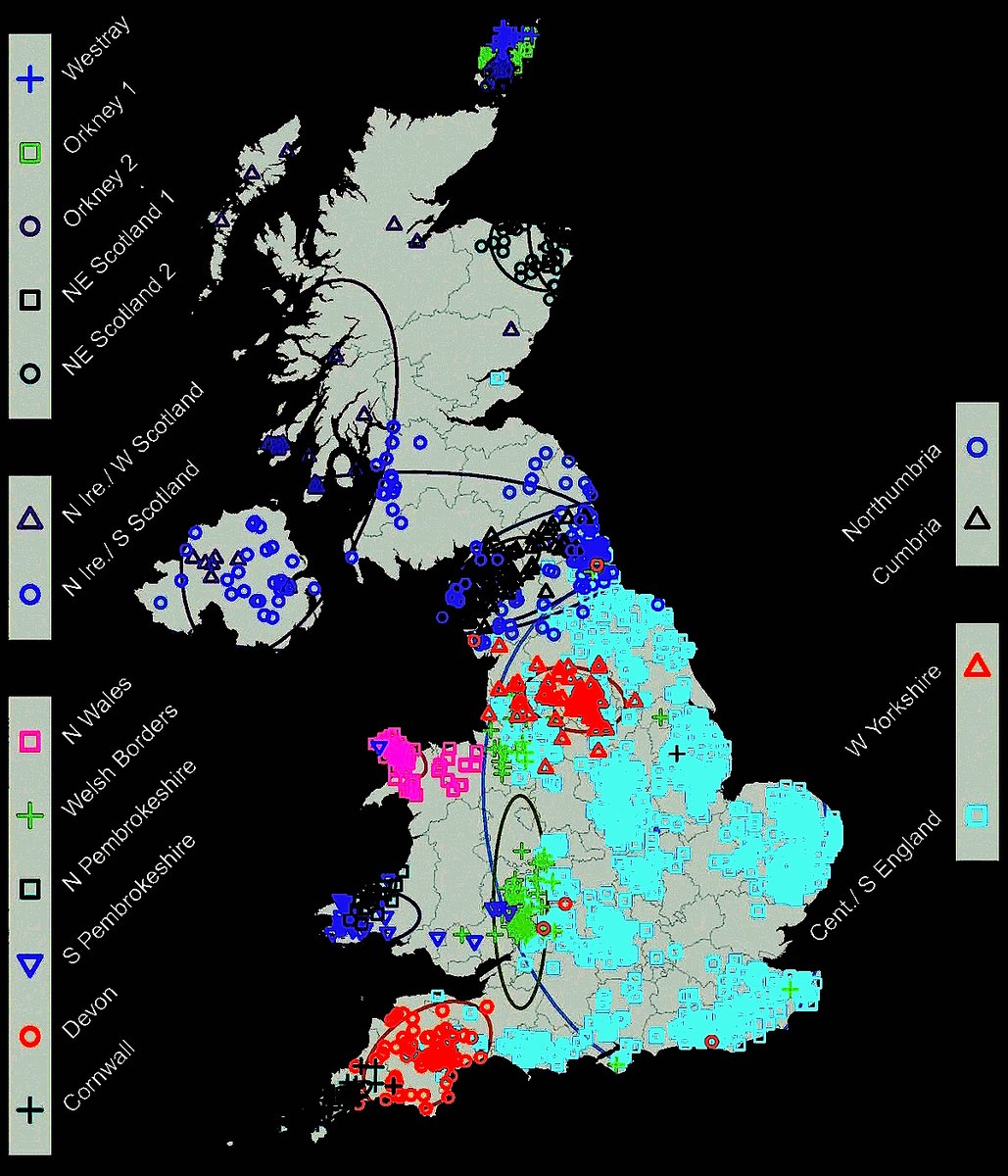
And yes, Stewart Lee does this brilliantly in his ‘coming over here…’ routine.
https://t.co/7KV5HKnDzD
https://t.co/JSNHGTbVux
Science is no ally when claiming ownership of lands, nor separation or superiority of races. These are the facts of biology.
21/21
https://t.co/sWvamDNi62
You're more of a Marxist propagandist than a scientist. Interesting that it is only white Europeans whom you seek to deny any claim to an ancestral homeland. Any fool knows that Europeans originate in Europe and Africans in Africa etc. The clue is in the name. You fool no-one.
— Rural Conservative Movement (@RuralConserv) December 16, 2020
https://t.co/ppO9Z5HF9z
The DNA of the inhabitants of the British Isles barely changed in 1,000 years of our history up to the start of mass immigration in the 1950s. Up to that point we were 99.95% white and migrant groups who had previously come here were a) tiny in number & b) fellow white Europeans.
— Rural Conservative Movement (@RuralConserv) December 16, 2020
More from Book
Aboriginal self-government - legal and constitutional issues 1995 Ottawa, Canada- Royal Commission on Aboriginal Peoples #Metis
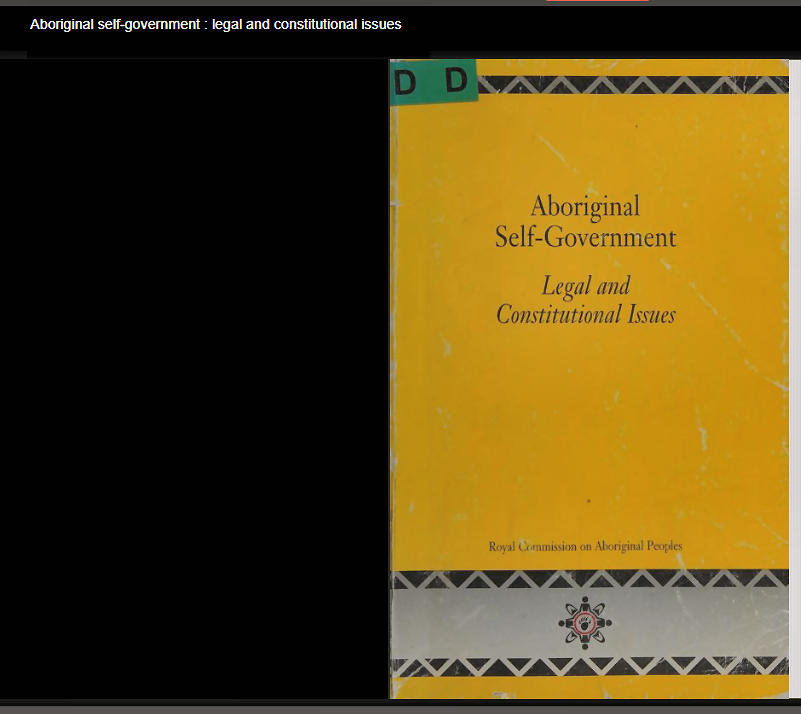
Aboriginal self-government - legal and constitutional issues 1995 Ottawa, Canada- Royal Commission on Aboriginal Peoples- pg141. - papers argues that it is logical and sensible to consider persons of mixed ancestry of all kinds to be within sec. 91(24) jurisdiction and that the
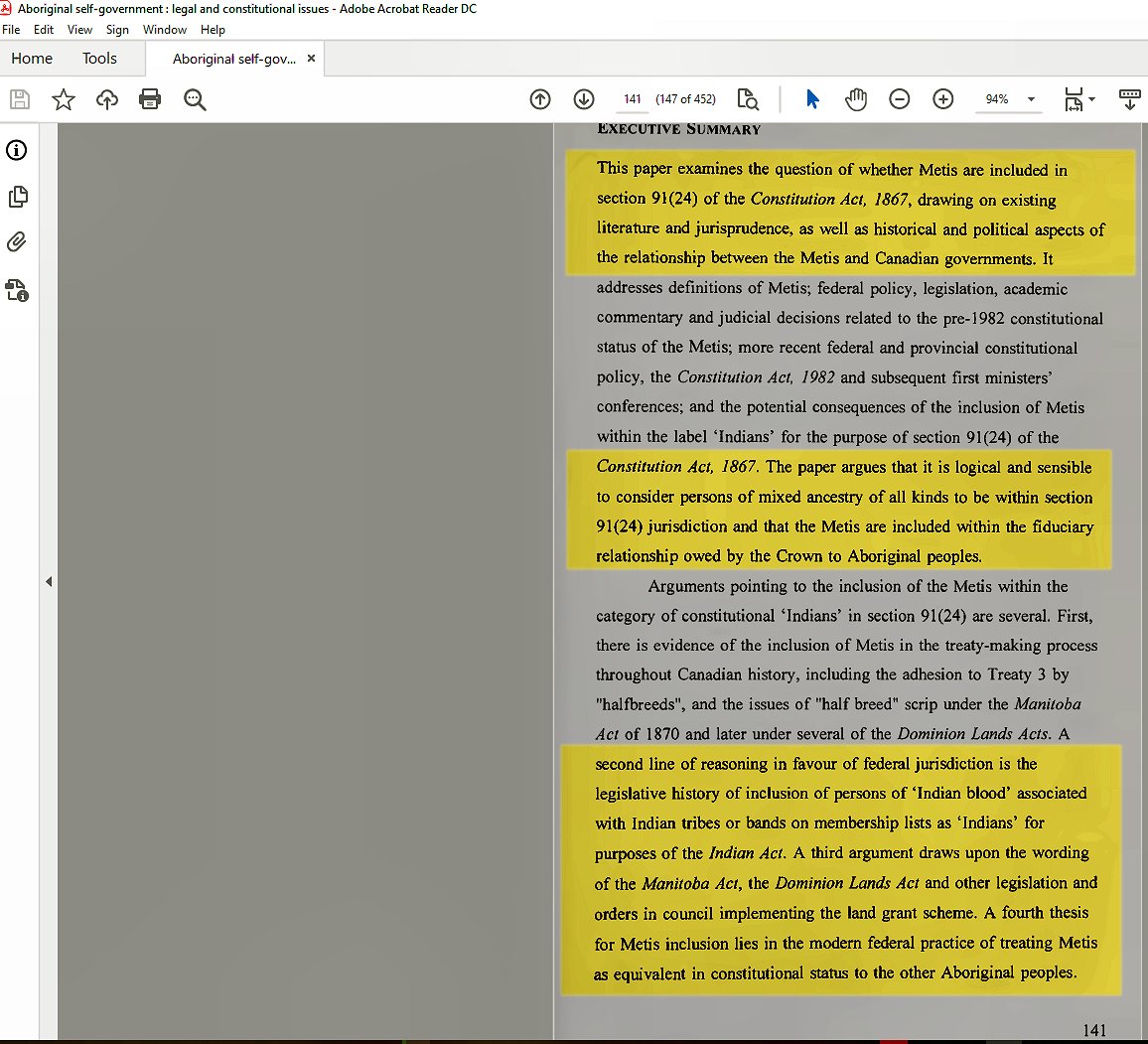
Metis are included within the fiduciary relationship owed by the crown to the Aboriginal peoples. (pg142) The recognition of Metis as one of the "aboriginal peoples of Canada" in section 35 of the Constitution Act 1982, reinforces this federal practice. "It is concluded that
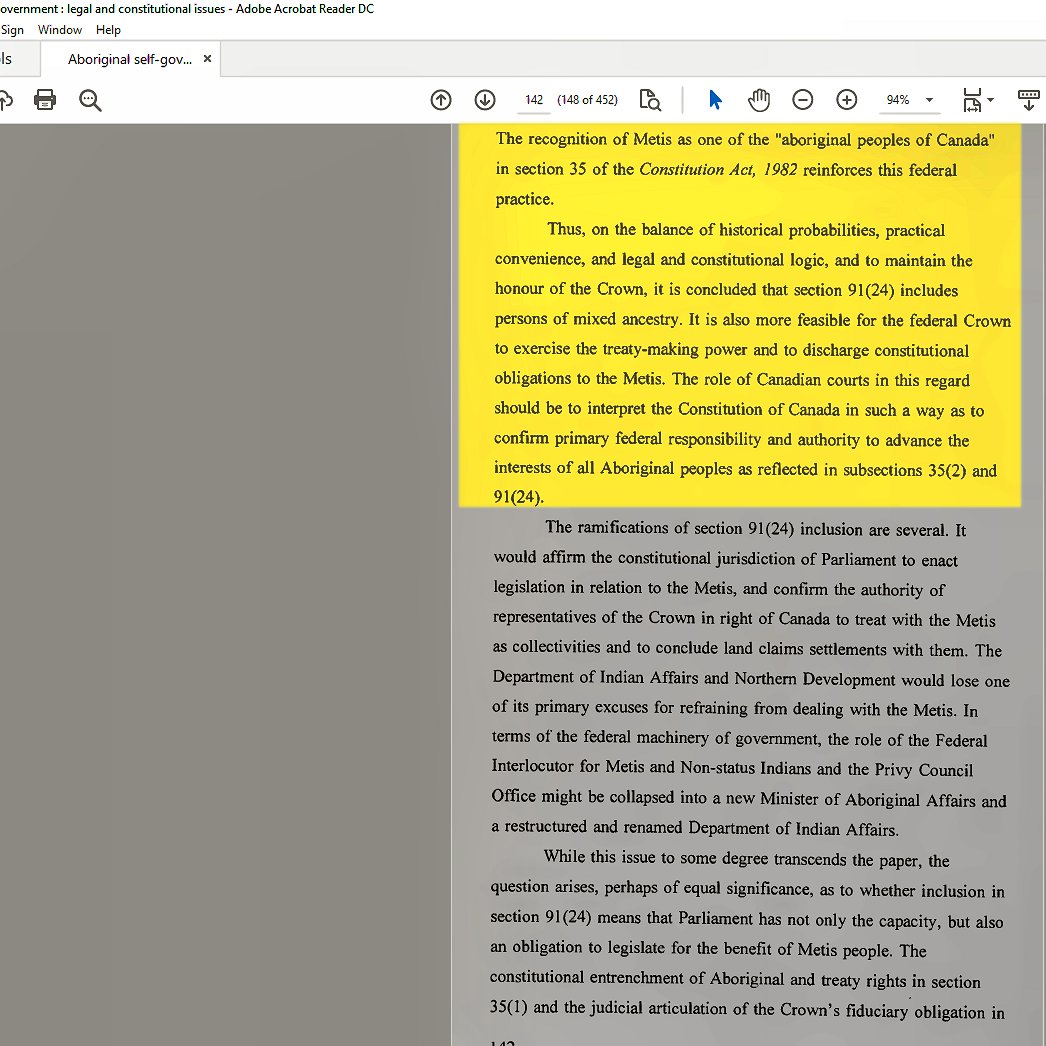
sec 91(24) includes persons of mixed ancestry." pg143- "the Guerin case suggests that the federal gov. may be breaching its fiduciary obligations if it refuses to initiate legislation needed to acknowledge the existence of certain Aboriginal peoples or to meet basic economic
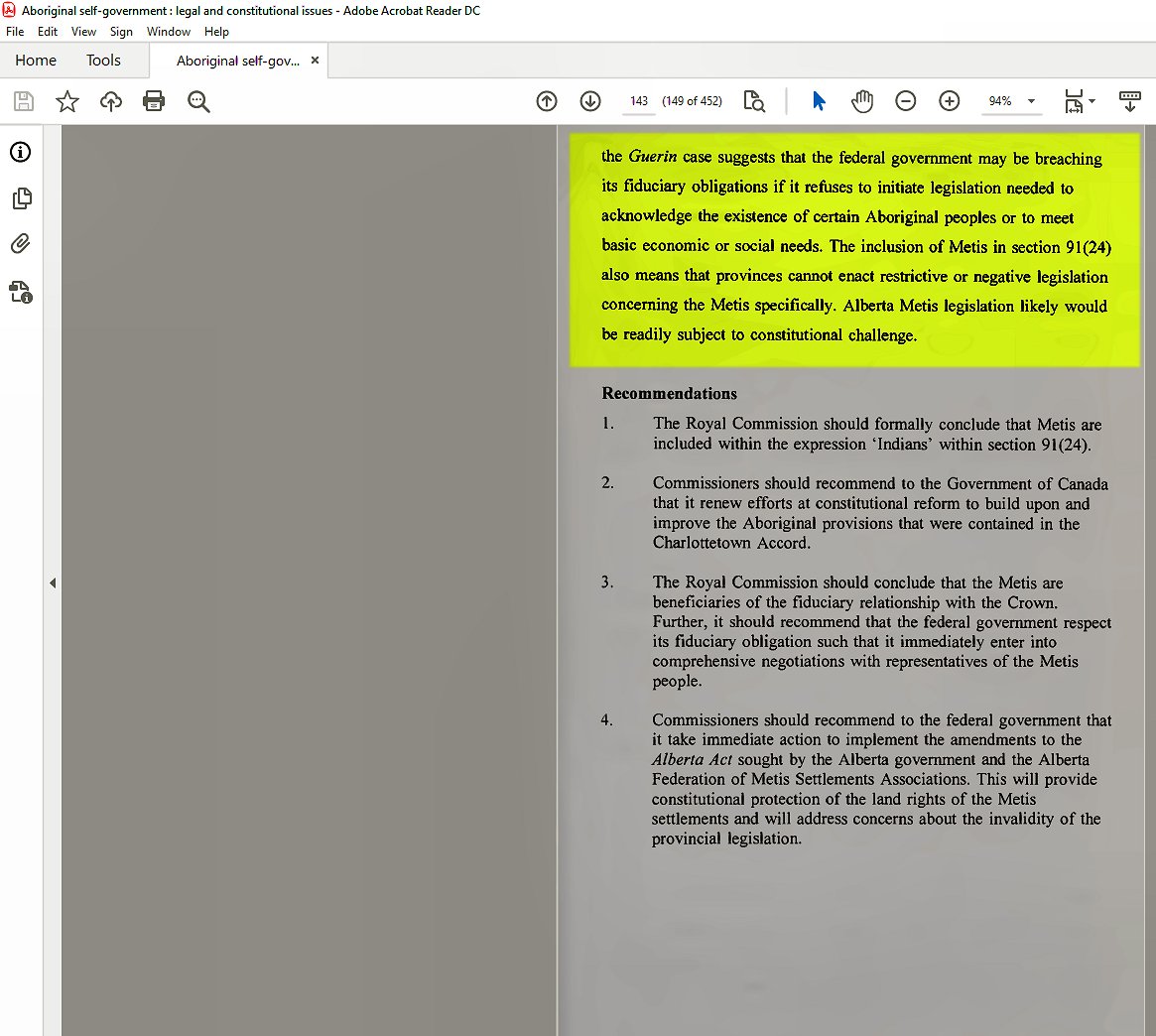
or social needs." https://t.co/90gG3LeCFC -
RELATED CASES AND POSTS
Guerin v. The Queen, [1984] 2 SCR 335

Aboriginal self-government - legal and constitutional issues 1995 Ottawa, Canada- Royal Commission on Aboriginal Peoples- pg141. - papers argues that it is logical and sensible to consider persons of mixed ancestry of all kinds to be within sec. 91(24) jurisdiction and that the

Metis are included within the fiduciary relationship owed by the crown to the Aboriginal peoples. (pg142) The recognition of Metis as one of the "aboriginal peoples of Canada" in section 35 of the Constitution Act 1982, reinforces this federal practice. "It is concluded that

sec 91(24) includes persons of mixed ancestry." pg143- "the Guerin case suggests that the federal gov. may be breaching its fiduciary obligations if it refuses to initiate legislation needed to acknowledge the existence of certain Aboriginal peoples or to meet basic economic

or social needs." https://t.co/90gG3LeCFC -
RELATED CASES AND POSTS
Guerin v. The Queen, [1984] 2 SCR 335
You May Also Like
I just finished Eric Adler's The Battle of the Classics, and wanted to say something about Joel Christiansen's review linked below. I am not sure what motivates the review (I speculate a bit below), but it gives a very misleading impression of the book. 1/x
The meat of the criticism is that the history Adler gives is insufficiently critical. Adler describes a few figures who had a great influence on how the modern US university was formed. It's certainly critical: it focuses on the social Darwinism of these figures. 2/x
Other insinuations and suggestions in the review seem wildly off the mark, distorted, or inappropriate-- for example, that the book is clickbaity (it is scholarly) or conservative (hardly) or connected to the events at the Capitol (give me a break). 3/x
The core question: in what sense is classics inherently racist? Classics is old. On Adler's account, it begins in ancient Rome and is revived in the Renaissance. Slavery (Christiansen's primary concern) is also very old. Let's say classics is an education for slaveowners. 4/x
It's worth remembering that literacy itself is elite throughout most of this history. Literacy is, then, also the education of slaveowners. We can honor oral and musical traditions without denying that literacy is, generally, good. 5/x
As someone\u2019s who\u2019s read the book, this review strikes me as tremendously unfair. It mostly faults Adler for not writing the book the reviewer wishes he had! https://t.co/pqpt5Ziivj
— Teresa M. Bejan (@tmbejan) January 12, 2021
The meat of the criticism is that the history Adler gives is insufficiently critical. Adler describes a few figures who had a great influence on how the modern US university was formed. It's certainly critical: it focuses on the social Darwinism of these figures. 2/x
Other insinuations and suggestions in the review seem wildly off the mark, distorted, or inappropriate-- for example, that the book is clickbaity (it is scholarly) or conservative (hardly) or connected to the events at the Capitol (give me a break). 3/x
The core question: in what sense is classics inherently racist? Classics is old. On Adler's account, it begins in ancient Rome and is revived in the Renaissance. Slavery (Christiansen's primary concern) is also very old. Let's say classics is an education for slaveowners. 4/x
It's worth remembering that literacy itself is elite throughout most of this history. Literacy is, then, also the education of slaveowners. We can honor oral and musical traditions without denying that literacy is, generally, good. 5/x
















